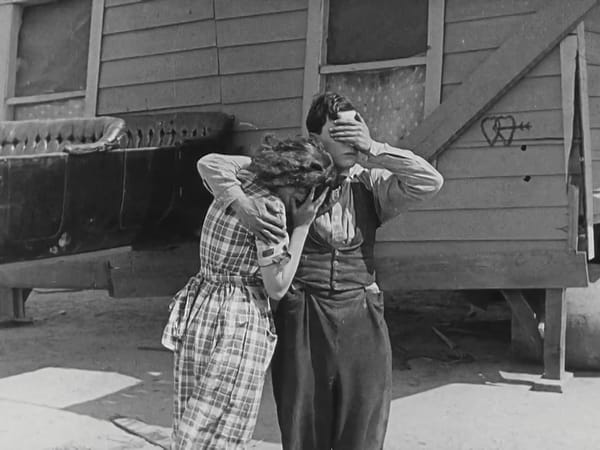On Film Criticism #8: Acting

Artwork by Neven Udovičić
“Acting is really hard to talk about,” Isaac Butler tells Claire Davidson in his interview about his new book on Method acting, and he is right. Which is why it is a point of pride to publish three essays in this month’s issue that touch on this most ineffable aspect of filmmaking.
Claire’s wide-ranging interview highlights the importance of contextualising acting styles in film history, and Sam Moore takes up the torch in his essay on the recurring pitiable screen persona of Vincent Price. In Theatre of Blood, The Fall of the House of Usher, and The Abominable Dr. Phibes, the actor’s performance pulls the rug from under horror audiences and cannily reworks the classical dynamics of the genre from the inside.
From the endearingly pathetic weaklings embodied by Vincent Price, to the loveable hunks of Channing Tatum, there is only one click: Mark Asch’s dazzling essay on the himbo finds the purest image of the affably non-threatening, muscular hero in Tatum’s Dog, its evil twin in the ageing masochistic men of Jackass Forever, and its latest refraction in Sean Baker’s Red Rocket.
In the figure of the himbo, performance collapses into a way of life, and the next two essays more specifically highlight it as a series of inherited habits, with far-reaching consequences. Director Victoria Fiore tells us about her heartbreaking documentary Nascondino, centred on a young boy growing up in Naples, his hopes and dreams influenced as much by the attractive image of the Napolitan life of crime glamorised in Gomorrah as they are by the material conditions of his life.
The final essay explores three films in which the performance of machismo and a stubborn model of masculinity once again cast a long shadow over younger generations: in Murina, The Staffroom, and Brotherhood, young people in countries of the former Yugoslavia struggle to find models they can follow.
Acting is difficult to write about, but looking at cinema through that lens reveals that it naturally pervades and informs every other aspect of filmmaking, in such a way that blinkered awards ceremonies too often forget to acknowledge. Writing about acting is also an opportunity to get away from limiting definitions of what it is and what its role should be.




